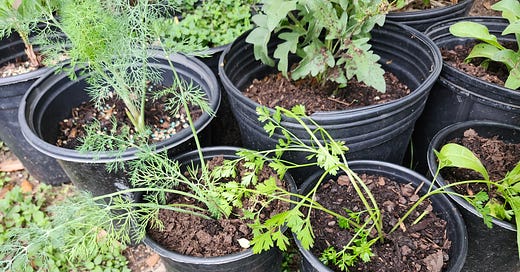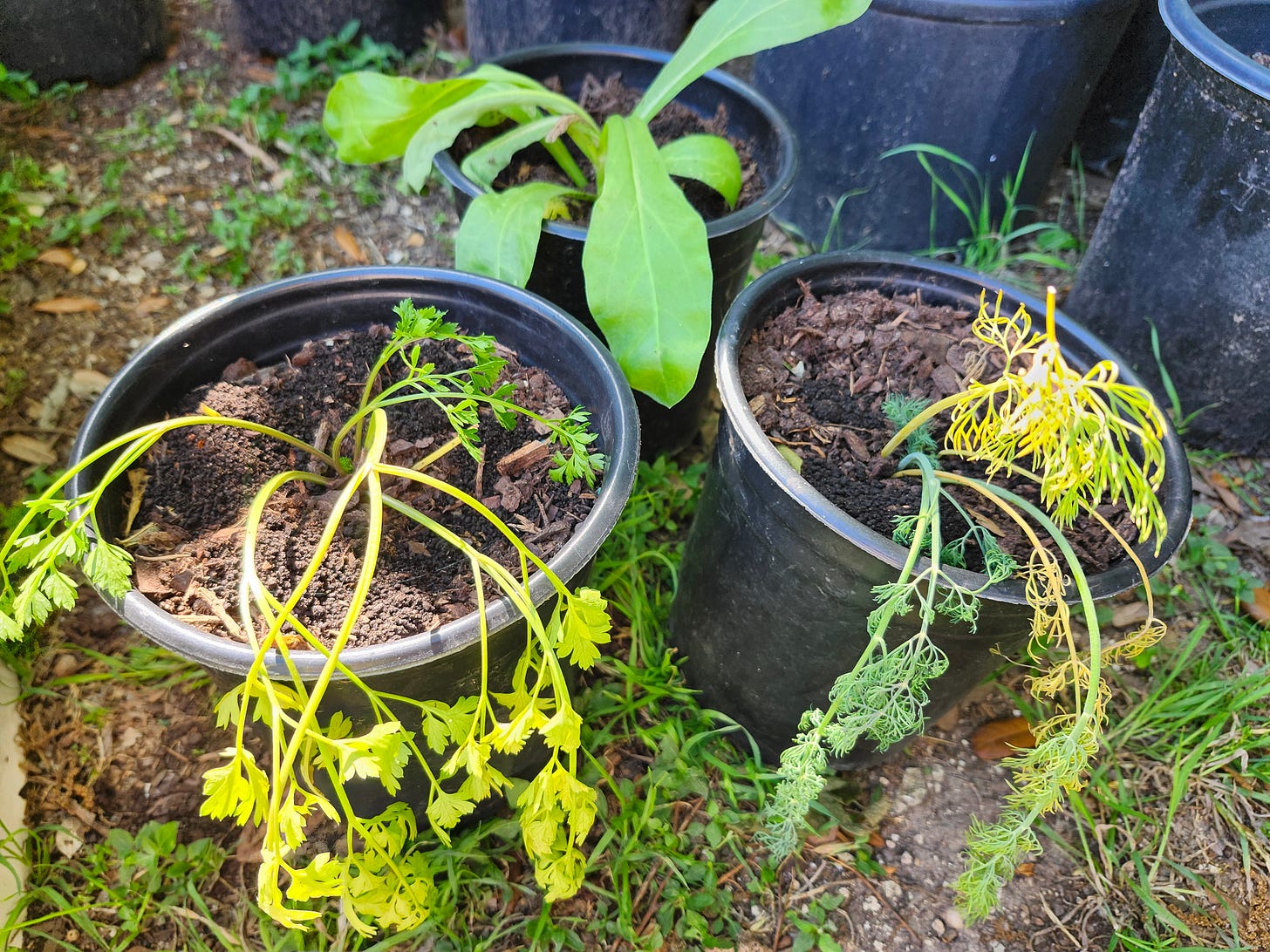As a newbie gardener, I’m learning much about the resiliency of plants. Weeds, when left unchecked, can take over a garden and snuff out the “real” plants. I’m amazed at how winter plants (e.g., cabbage, broccoli, carrots) can survive through bitterly cold nights. I’ve been surprised by the way trees and foliage are able to survive through searing heat and the total absence of precipitation during the summer months in Austin, Texas, where I currently live.
Recently, I’ve been tweaking my home garden and one of my tasks has been to move a few herbs from a bed that gets too hot in the summer to a more shady spot. The fact that there were any herbs at all that survived in the overheated bed was a stunning feat in and of itself. But these herbs couldn’t thrive in the relentless heat of summer, so I decided it was time for a change in their geography.
I carefully dug around the herbs to be transplanted in order cause the least disturbance possible. Having been well-established in this location, these herbs had deep root systems which I necessarily had to injure. I knew that the transplantation process wouldn’t be painless to my little herbs and I knew there was a chance the plants would die, but I also knew that if I didn’t try, they would never thrive and might even die when the peak of summer hits in a few months.
I gave my little patients everything I knew to help them along. I gave them fresh, nutrient-rich soil. I kept their roots watered but not soggy. I placed them in locations that I knew would remain shaded from the direct sun. Despite all of my efforts, my transplants wilted, and looked very sad. :(
As I looked at my wilted babies, I realized that I could relate to their suffering. When I transplanted myself to Austin from the northeast U.S. where I’d lived my entire life, I felt a little droopy at times, too. In contrast to moving my plants out of the direct sun to avoid the heat, I moved myself to a sunnier climate because knew that I would be happier in a place that better suited my sunshine-loving nature.
Have you ever been (or felt like) a transplant?
In my case, I made a conscious choice to be transplanted to the southern U.S., but my herbs didn’t have a choice. Someone bigger and stronger made the choice for them and they had to decide whether to try to survive the move or not.
Perhaps you can relate to that.
Have you ever been in a spot not of your choosing that required you to adapt to your new situation? Have you felt ‘wilted’ because of a major life change? Maybe, like me, you chose the situation, but still found the adjustment to your new life to be difficult in some ways?
How do we adapt when circumstances transplant us into a new place?
Your “new place” may not be physical. It could be emotional. Perhaps you’ve suffered the loss of a loved one. Perhaps you’ve lost a friend or are suffering from empty nest syndrome. Perhaps you feel yourself inexplicably in the midst of a life transition that you can’t quite describe (e.g., a “mid-life crisis”).
Even happy circumstances can cause stress. Getting married, having a child, and starting a new job are among the most stress-inducing events we can experience, even though most people consider them to be positive events.
If you’re feeling the stress of being transplanted to a new place, whether it’s physical, emotional, or even spiritual, how can you ease the transition?
To adapt, the first step is to recognize and acknowledge where you are. Sometimes we suffer simply because we don’t fully understand our situation or we deny the significance of what is happening to us.
Once you’ve recognized the challenge (or opportunity) you are facing, make the commitment to face it head on. What’s possible for you to do? What are you willing to do? How can you find the energy, courage, or determination to keep going when you feel like you would rather just give up?
As humans, we have an advantage over my transplant babies because we can think and make decisions. We can plan, learn, and strategize. Our logical and emotional minds provide us with a wealth of options for success. But it also provides the one thing that causes us to fail: we can choose not to give it our best effort.
I imagine that my transplanted herbs never wondered how they would survive in their new environment. If they thought anything at all, it would probably be something like “Well, here I am. This kinda sucks. But what can I do except adapt? It’s do or die here.” And then they would put literally everything they have into living.
I like being a human rather than a plant, so I’ll take the good with the bad on that, but I have learned something important from my plant friends. I’m happy to report that all of my transplanted herbs are now thriving in their new homes. It took them a week or two to fully recover from their trauma — which is probably years or decades in human terms — but they now have new friends and are on course to have a much more pleasant time for the remainder of their lives.
What will you to choose? Will you give up or can you also learn from my transplants? Can you, too, decide that thriving is the only option? My herbs and I certainly hope you will! :)






What a wonderful weave from garden awareness to human perseverance. Especially resonated with the gardener/human in me!!!!